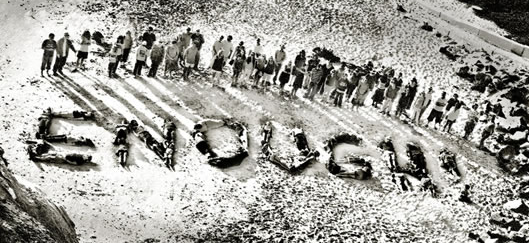By Nicolas Leberer
The genocide in Darfur has been far from our thoughts recently. With the ongoing conflict in the Ukraine and civil unrest at home, it does not come as a surprise that Darfur is probably low on people’s priorities list. It is due to the lack of public attention on Darfur that many people do not know what is currently happening there and why so little is being done to stop it.
The genocide in Darfur can be brought back to three main drivers, ethnicity, oil, and desertification. The ethnic problem in the Sudan can be traced back to when the United Kingdom controlled the region of Sudan, south of Egypt. When the British left, the Sudanese borders were not drawn based on ethnic, religious, or geographical differences. This was the main catalyst for tension. Then, the region of Sudan was comprised of three main regions, divided by culture. The north, which is primarily Arabic and Muslim. The south, which is African and Christian. The Western region, also known as Darfur or the Land of the Fur, is comprised of many tribes. The tribes are either African and Muslim, or Arabic and Muslim. The Arabic tribes are nomadic herders, while the African tribes are farmers. The Arabs of the north looked down on the Africans of the south. Already, the ethnic tensions were already in place for the genocide to occur.
Oil is also a primary driver in the genocide. Southern Sudan is very rich in oil, but the oil is exported through the port, in the north. As a result the North makes all of the money, and instead of giving money to its entire population equally, the North gave it to the Arab population in the North. Upset over the lack of money being given to them, the south rebelled in the 2nd Sudanese Civil War in 1983. The Civil War ended in 2005, with the south splitting from Sudan and receiving half of the oil profits. The African tribes in the West followed the South’s example and revolted in 2003.
The North Sudanese strategy for dealing with the rebellion was a simple one. Catch the fish by draining the sea. In this instance, the fish are the rebels, the sea is the civilian population of Darfur. The North Sudanese aren’t acting alone, China, who is Sudan’s largest purchaser of oil, doesn’t want the rebellion to disrupt its oil flow, so they armed the Sudanese with guns, planes, and helicopters to put down the rebellion. An assault on the village usually goes like this. In the middle of the night, the village is bombed substantially. At dawn, a helicopter with a machinegun goes and starts shooting indiscriminately at the residents in the village. After that, the Janjaweed, the Devils on Horseback, an Arab tribe armed and funded by the Sudanese government, goes in and kills the men of the village and rapes or enslaves the women and children. They burn down houses, they dig up and burn food stores, and they throw dead bodies in the wells to ensure that the village never recovers.
How did the Sudanese government convince the Janjaweed to turn against their neighboring tribes? Resources. The Sahara Desert has been expanding into Darfur, with less and less arable land for farming and water for crops and livestock, there simply isn’t enough for their previous lifestyle. And their previous lifestyle wasn’t one of luxury, it was a hard, scares life. The desertification of the Darfur has destabilized the region, making it susceptible to rebellions and genocides such as this. Until the desertification stops and is reversed, stability will not return soon the region of Darfur.
So far, the attempts for peace have been unsuccessful, and the situation has fallen from the public’s attention, meaning aid programs are less effective than otherwise. The International Criminal Court has indicted several people involved in the situation, but the Sudanese government has replied by rejecting the request to hand over those responsible, and expelling foreign and domestic aid groups. The situation in Darfur looks bleak, but by learning and sharing your knowledge with others, can help the cause for peace in Darfur gain more support in the United States, and the world.

